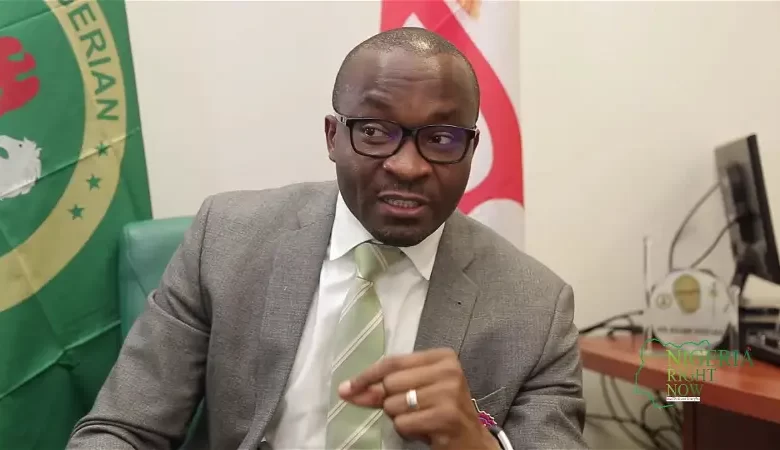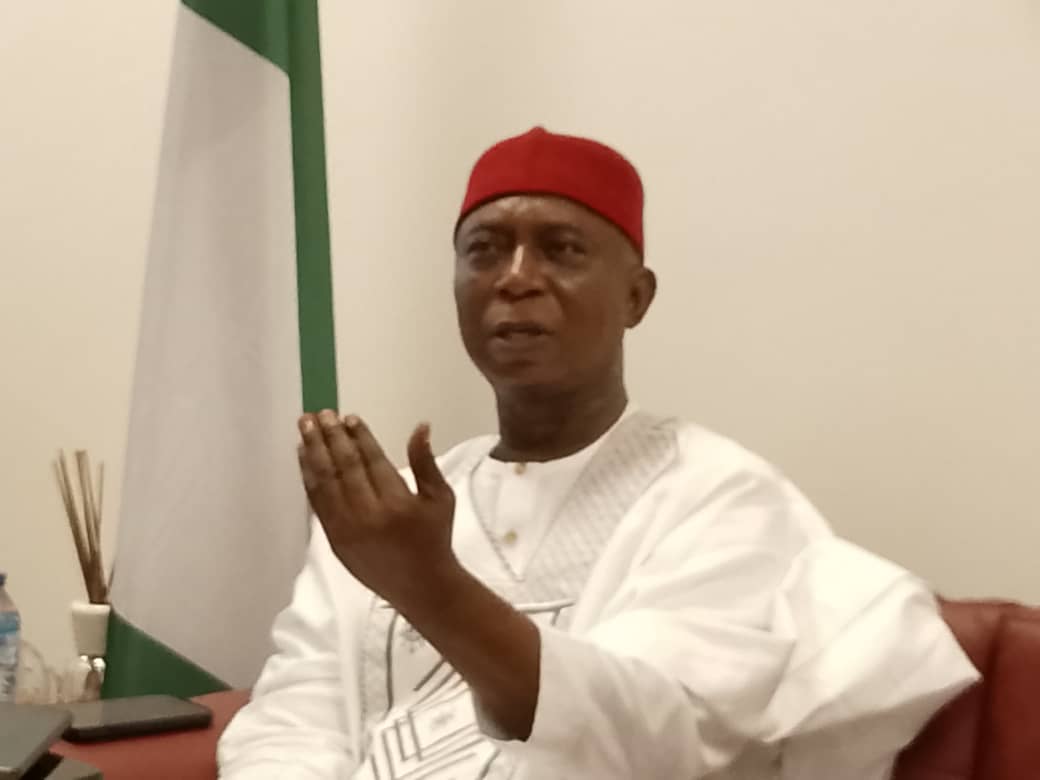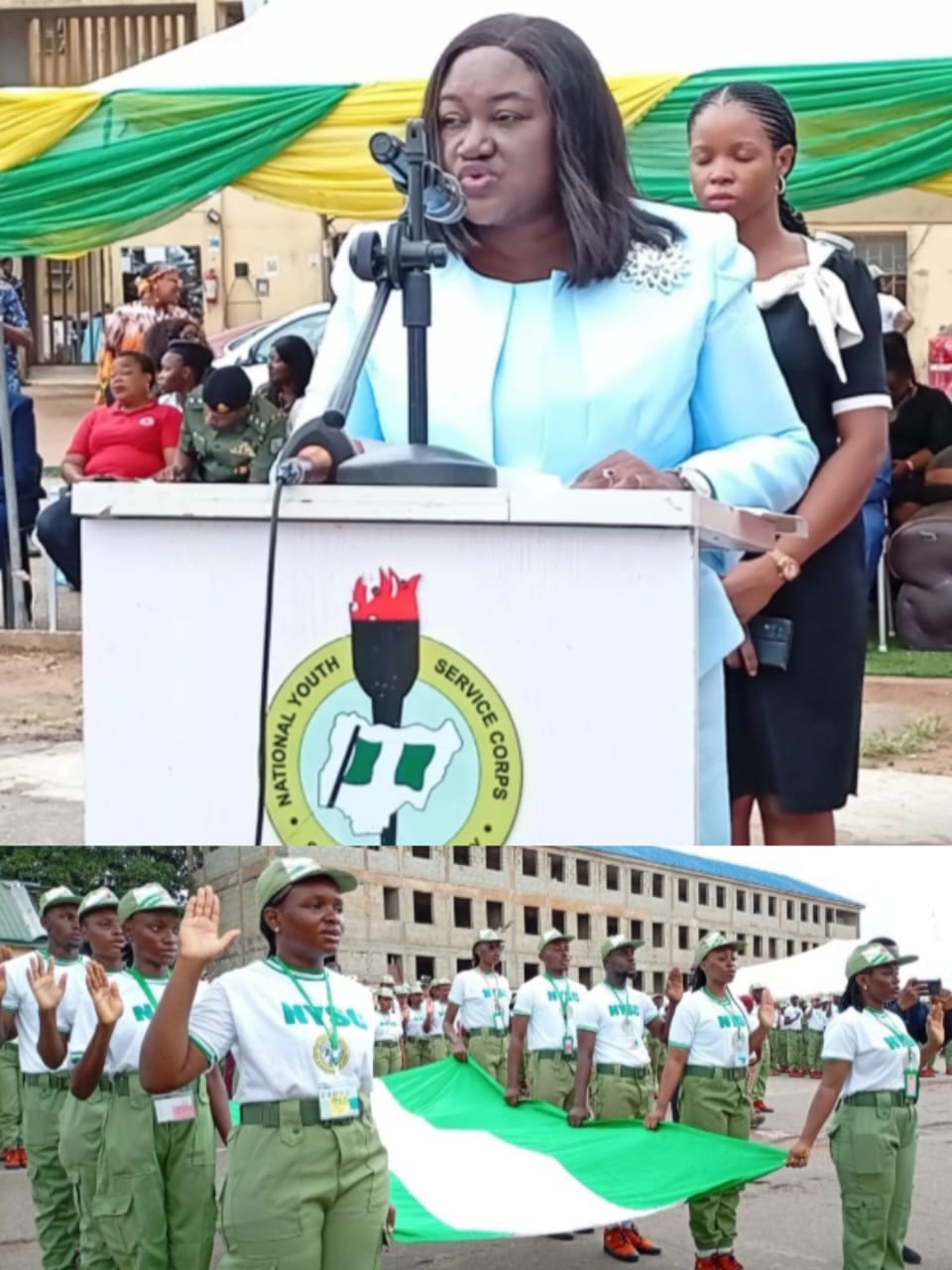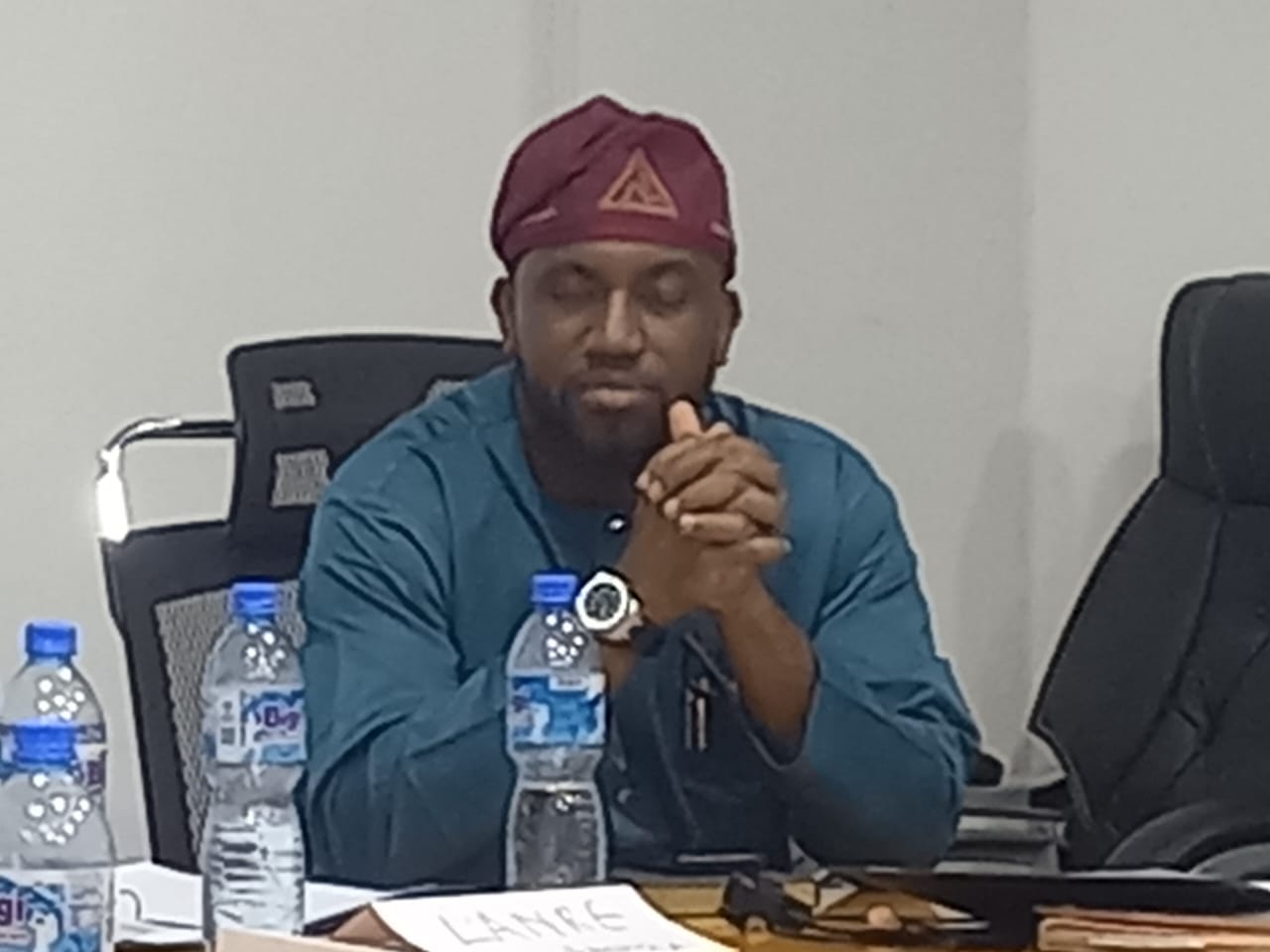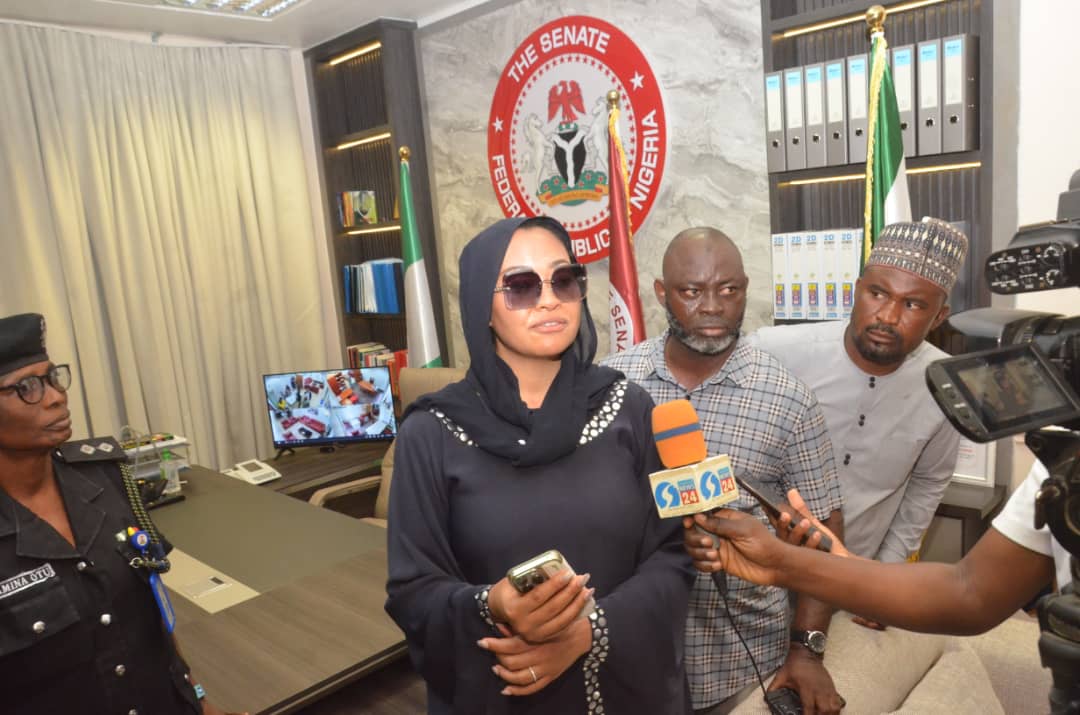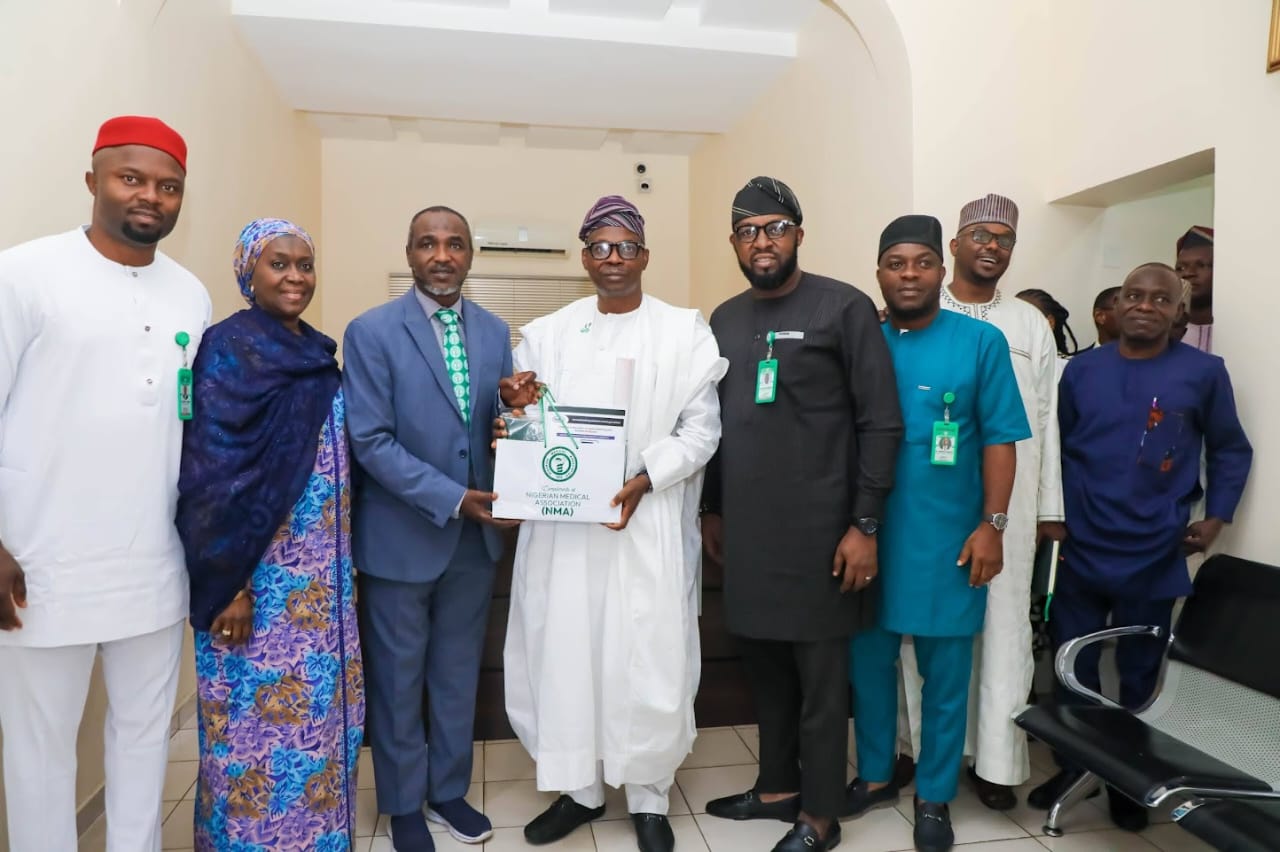
The Minister of State for Health and Social Welfare, Dr. Iziaq Adekunle Salako, has reaffirmed the pivotal role of medical doctors in steering Nigeria’s healthcare system, insisting that they must remain at the helm of service delivery in alignment with global best practices and historical precedent.
This was made known in a press statement issued Tuesday by Alaba Balogun, Deputy Director of Information and Public Relations.
Speaking during his official visit to the Nigerian Medical Association (NMA) headquarters in Abuja, Dr. Salako emphasized that the structure of Nigeria’s health system, inherited from the British colonial model, places doctors at the forefront of healthcare leadership.
“Patients visit hospitals primarily to see doctors,” he said. “Yes, they interact with other professionals, but doctors are central. Globally, doctors are positioned to provide leadership. Nigeria cannot be an exception.”
He acknowledged that leading in a multi-professional environment is challenging and demands vision, sacrifice, and continuous improvement. “If you’re not ahead as a leader, you lose the leadership position,” he warned, urging Nigerian doctors to rise to the occasion and continuously build their capacity to lead effectively.
Dr. Salako also praised the resilience and patriotism of doctors who continue to serve in Nigeria despite the lure of better opportunities abroad. “I proudly call myself a homeboy,” he said. “I commend all of you who have chosen to stay and build this country — because we have no other.”
Drawing historical parallels, the Minister linked the current wave of health worker emigration to the legacy of exploitation that began with slavery and colonization.
He criticized contemporary brain drain as a form of neo-colonialism that robs Nigeria of its skilled workforce.
In his welcome address, the NMA President, Dr. Audu Bala, hailed the Minister’s visit as a testament to the government’s commitment to health sector reforms under President Bola Ahmed Tinubu’s “Renewed Hope Agenda.”
“This visit underscores the seriousness with which the government regards the health sector and its frontline workforce,” Dr. Bala said.
He highlighted recent policy initiatives to stem the tide of brain drain, including a health workforce retention strategy and the expansion of medical training capacity in tertiary institutions. “This could position Nigeria as a major exporter of health professionals — boosting both our healthcare system and our economy,” he noted.
Dr. Bala also pointed to ongoing efforts to revitalize the health value chain and promote local pharmaceutical production, emphasizing the need to tap into the global health economy, which he described as a “multi-trillion-dollar industry.”
“When properly harnessed, these reforms can reverse medical tourism, improve local access to care, and transform Nigeria into a regional healthcare hub,” he said.
READ ALSO: Utsev, ICRC Deepen PPP Collaboration to Boost Water, Sanitation, Food Security Infrastructure
Early Voting Bill Will Solve Many Electoral Challenges – Senator Abdulaziz Yar’Adua
Both leaders stressed the need for sustained collaboration among government, professionals, and society to build a resilient healthcare system that meets national needs and contributes meaningfully to Nigeria’s economic development.
Dr. Salako’s visit is part of his ongoing engagement with agencies, parastatals, and professional bodies under the Federal Ministry of Health and Social Welfare.

